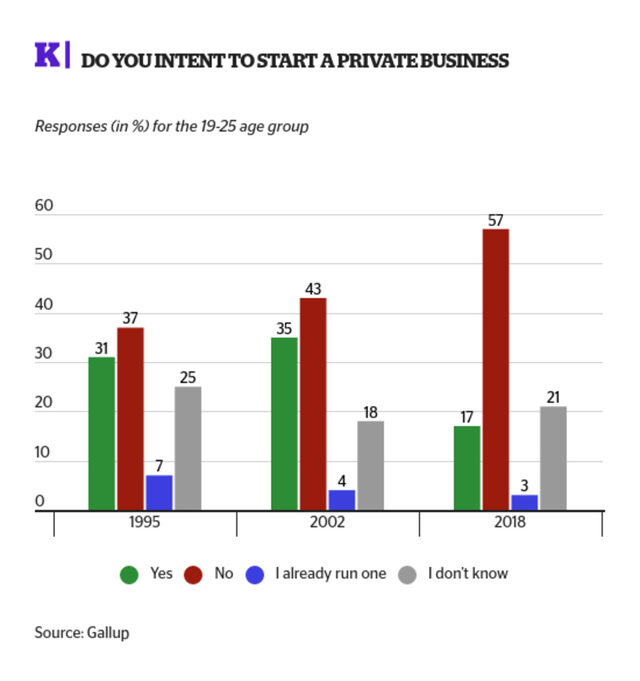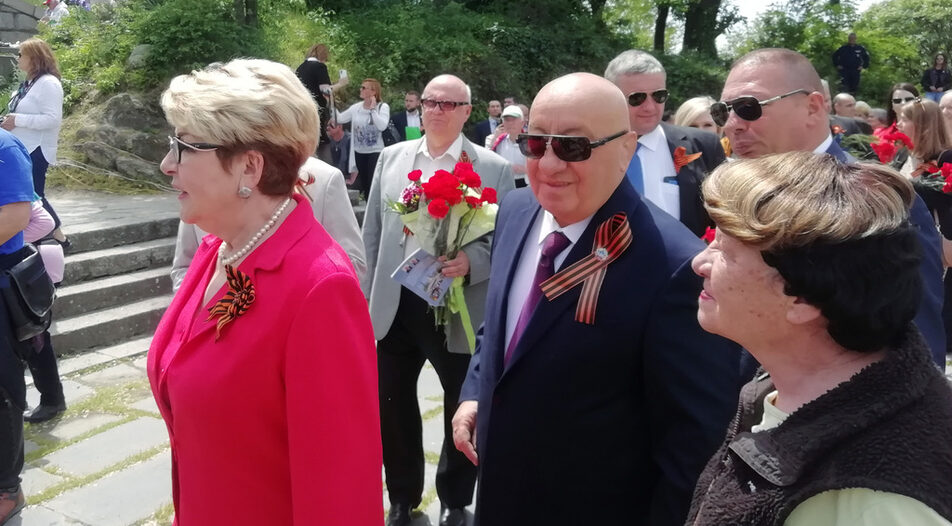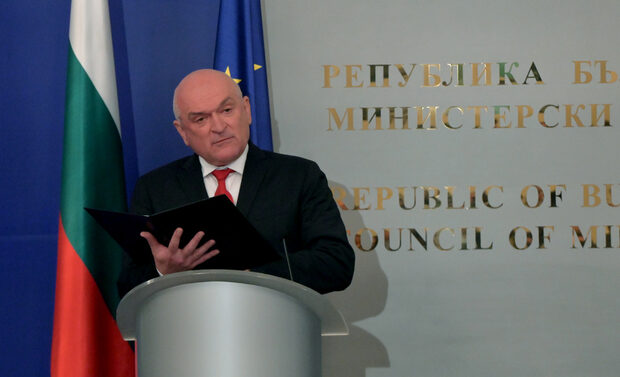So let's talk a little bit about entrepreneurship. Yes, I know Nexo is the craze of the week, and it also features heavily in the Bulgarian entrepreneurial galaxy, but we have a lot more on the topic in this article and also, you'll find some more points on that below.
Here I want to point out the two major successful ways to be an entrepreneur in Bulgaria. For this, I will use 2 examples from the city of Plovdiv.
The first we should call "the Gergov way". Georgi Gergov (pictured above with his friend, the Russian ambassador by the way, Mr Gergov himself is an honorary consul of Russia) is what you would typically call "an oligarch". As in - someone who benefited mightily from being close to those in power. His big hit was in the middle of the 2000s when he managed to convince the municipality of Plovdiv to participate in a public-private partnership with him, putting a bunch of expensive real estate across the city in a joint company. He later raised the capital, not meeting any resistance from the municipality and in effect took control of the whole venture.
But he proved to be even more successful at convincing national authorities to partner with him: the state-owned Plovdiv fair (established in 1892) was taken out of the list of companies not to be privatized in 2006-2007 and transferred to the same PPP company, which Gergov took control of. He still controls it to this day and wants to get an even bigger slice of it (presumably to build on this large piece of real estate right in the middle of the city). In this initiative, he is helped by a whole range of politicians - from the mayor of Varna, to municipal councilors in Plovdiv.
This, in a way, is a typical example of what happened all over the former Communist bloc in the 90s and 2000s. You must know plenty of examples from Russia, Czech Republic, Hungary, and Slovakia etc. All you have to do is bribe the necessary people and be ruthless enough, and you will get a piece of the treasury.
Then there's the other form of entrepreneurship - the one that usually stays under the radar. It's not about whom you know, but what you can do. It's not about privatizing already created public wealth, but creating more on your own. Meet someone else from Plovdiv - Nikola Angelov and his brother were already leaders in the cow-business and were raising more than 6000 cows when they decided to diversify. Seven years ago they created another company and now "Elit 2095" is a leader in another niche - ducks. He created the new venture with a bank credit and right now is exporting more than 1 million ducks to France, Belgium etc.
Perhaps you're wondering why I'm telling you this. Well, If you ever wanted to know what's really happening with the Bulgarian economy, I'd start by creating an index, based on the publicly known oligarchs and their wealth as a percentage of the overall economy and then comparing that to all the smaller (or bigger) entrepreneurs like Angelov, who are creating new value. My guess is that the latter is actually growing in the past several years, but we are not seeing it anywhere, because the Bulgarian media rarely, if ever, mentions local success business stories. If it ever does, it is in the context of the Nexo story - TV suddenly discovers there are local companies with a global presence, but only if there is a scandal.
That has awful consequences.
In a recent survey, conducted by Gallop and presented to Capital as part of a story about the best Bulgarian decade, the comparison between young people who wanted to start a business in the 90s and those who would do it now speaks volumes. If in 1995 38% of them either wanted to start a business or have already done so, by 2018 that percentage had fallen to 20%.

If there is one thing we should be doing more, it is reigniting the entrepreneurial spark we lost along the way. This begins with stories.
This newsletter is helped by
Martin Dimitrov & Evgeni Ahmedzai
1. Politics this week
From zero to hero: the Die Welt's article that changed the perception of Bulgaria's role in the Ukraine war Since the start of Russia's invasion of Ukraine, Bulgaria has largely been perceived as a reluctant supporter of American and European efforts to bolster Kyiv, rather than an active helper. This changed overnight as the renowned German magazine Die Welt published an article on Wednesday that drew a much rosier picture of Sofia's efforts, or rather - of its former reformist cabinet led by WCC's Kiril Petkov and Assen Vassilev - to aid the besieged nation in all ways possible.The article rather generously calls Bulgaria "the country that secretly saved Ukraine" and claims that, at certain times, Sofia delivered up to a third of all munitions used by the Ukrainian army and the lion's share of the diesel it needed (in an ironic twist, the fuel came from Russia through its Lukoil refinery in Burgas). Its publication coincided with another piece in Politico attributing similar feats to the WCC duo.
In all fairness, neither article says anything new (at least if you have followed KInsights) - it has been known for months that Bulgaria secretly sold much-needed Soviet-style weapons and ammunition to allied countries that have then passed them on to Ukraine. And Bulgarian re-export of fuel has also been a public secret.
The articles perhaps bestow too heroic a halo on the actions of the previous government, which were implemented under cover so as not to rile Bulgaria's Russophile public and its main political cheerleader, BSP. But it is definitely a welcome change from the usual negative coverage of Sofia's actions. More importantly, it will make it harder for GERB and Boyko Borissov to regain their position as leading Euro-Atlanticists.
In that regard: no more state security for the ex-PM
But wait, there is more on the topic: first of all, in a strange twist, on the day after the two abovementioned pieces were released, Mr Petkov told journalists in Parliament that he is no longer protected by the National Security Service (NSO), because the unit, which is under President Radev, claims there is no immediate threat to his security.
According to the law governing NSO, persons who have held the PM position can be protected for up to four years after their mandate expired. In November, the caretaker cabinet proposed shortening this period because frequent prime ministerial changes have incurred huge expenses for the NSO.
Russia planned a coup in Bulgaria in 2016 - and maybe will try again
The Russian Federation could be trying to sabotage the Bulgarian state, investigative journalist Hristo Grozev said in a video address during a forum on disinformation, organized by Democratic Bulgaria at the National Assembly on Tuesday.He noted that Russian sabotage groups, monitored by his organization, Bellingcat, had shown increased activity in recent months, which may pose dangers for Bulgaria's arms' producers. He also recalled an earlier investigation by his team, which claimed that in April 2016 there was an attempt by Russia's Main Intelligence Directorate (FSB) to significantly destabilize Bulgaria using two paramilitary groups, following the model used in the failed coup attempt in Montenegro the same year.
Nexo saga: a political turn and who has been indicted
Last week, the raid of the Prosecution in the offices of the Sofia-based crypto bank Nexo made headlines across the globe. This week, four company executives - Kosta Kanchev, Antoni Trenchev, Kalin Metodiev and Trayan Nikolov - received an indictment as an organized crime group. Beyond the claims of the prosecutors, which are questionable and have little to do with the ongoing investigations of Nexo in the USA and other countries (you can read more about these in an article on KInsights on Monday), the raid had its political implications.
GERB, MRF and the main tabloid websites and newspapers close to the two parties quickly colluded to attack center-right Democratic Bulgaria for having received campaign donations from employees in the firm. Several political leaders - including his close associate and caretaker PM Galab Donev claim this information persuaded Mr Radev to switch his choice for a third mandate-holder from Democratic Bulgaria to BSP - and so practically end all hopes of forming a cabinet.
The private border is not so private anymore
The state will dismantle at least one of the features of the Turkish-Bulgarian border which is now known as the "private EU border". This concerns the "golden pond" which has been operating for years and is taxing vehicles for disinfection. It is controlled by a private company and the government wants it transferred within the next 2 months.
2. Economy:
Speaking of oligarchs, meet another one: Hristo KovachkiThe long-time energy mogul who controls huge parts of the Bulgarian energy market, received another gift from the state. This time, the NPP "Kozloduy" forfeited 129 million levs it had to collect from non-completed contracts of companies connected to Kovachki. Instead of doing so, it settled a case with them, agreeing to pay 25 million levs. The Energy Ministry promised to investigate the case and punish the culprit. Given that the caretaker government is leaving, it's a rather imaginary promise.
Bulgaria emerges successfully on the global financial markets
The state managed to place debt for 1.5 billion euros, and orders exceeded 7 billion euros, not accounting for the interest of emission managers J.P. Morgan, BNP Paribas, Citi and Unicredit. According to the terms submitted by the finance ministry, the expected price was in the range of around Mid Swaps + 250 basis points, which means around 5.20-5.25%. The final yield is even better - 4.78%
This means the government now has enough money to cover the debt arising this year.
A tougher 2023: Austrian companies in Bulgaria
A survey conducted by Advantage Austria at the end of last year among 101 businesses shows half of them are pessimistic about the coming year. Inflation and supply chain problems are amongst the main worries, as is local corruption and unpredictable economic policy. While the last 2 are harder to dispute, the first two are definitely expected to be less severe this year.
Figures:
40.2% is the exports growth in November compared to 2021. The overall value is over 87 billion levs, or 44 billion euros.
16.9% is the December inflation, which means overall 15.3% for the whole 2022 - the highest since 1998.
1.3% GDP growth in 2023 is the Unicredit Bulbank forecast.
3. Business:
Ski
Amer SportsThe Finnish ski & sport manufacturer, currently based in the small Rodopi town of Chepelare, will build another factory down the same mountain road - in Asenovgrad. Amer Sports, which produces Atomic and Salomon, is currently responsible for 30% of global ski production. The Chepelare factory was bought by Amer in 2008.
Batteries
MonbatThe battery producer is going to delay debt payments because of the Britishvolt bankruptcy. The payment is due on 20 January, but the company announced it is going to pay by the end of the month. The British company was supposed to buy the German assets of Monbat.
DIY
Record yearThe top 5 retail chains in this sector registered a huge jump in 2021 - 14% growth in revenue. The companies (Praktiker, Mr. Bricolage, Home Max) expect an even larger growth in 2022 results - between 20 and 30%.
4. Energy:
The 30-year energy plan of the PresidentThis week's main energy story is the publication of a 30-year energy strategy for the country, drafted by President Radev's caretaker cabinet. It covers everything that has to be built, rebuilt and turned off in the sector in order for Bulgaria to reach net zero in 2053. However, the plan seems to be more of a pre-election tool rather than a working strategy.
According to it, the largest investments will be in new nuclear units - a total of 22 billion euros and another 18.6 billion euros for green hydrogen electrolysers and storage systems. In addition, there is a high reliance on new hydroelectric plants (which are important for balancing other RES), a very conservative approach to solar and wind plants, and postponing of coal phase-out. However, there is nothing about decarbonisation of the industry, about energy efficiency, about smart grids or energy cooperatives.
The biggest blunder of the program is the projected increase in electricity consumption foreseeing twice the 2020 levels. Such a forecast is highly uncertain even though electrification will hold sway over every sector of the economy. Possibly the electricity consumption leverage is used to justify the vast array of new projects in the plan.
5. Watch out for:
People: Atanas PekanovThe current deputy prime minister and macroeconomist has been rumored as Rumen Radev's next choice to be caretaker PM, as cited in a FB post of a sociologist close to the President that has been quoted in a national newspaper. Pekanov has already assumed the role of deputy PM twice in the two last cabinets of Radev.
Company:
Blue CardsOn Thursday the National Assembly facilitated access to the Bulgarian labor market for highly qualified workers who are citizens of countries outside the EU. The changes to the so-called Blue Card scheme require foreign workers to have elevated professional qualifications (higher education or knowledge, skills and competences, certified by an official document). The gross salary indicated in the worker's employment contract must be at least 1.5 times higher than the average salary in Bulgaria. The deputies shortened the duration of the employment contract, which is now required to be no shorter than 6 months, instead of 12 months as before.
Location:
SofiaThe capital is still holding a giant share of the national economy: 43% last year, according to data by the Institute for Market Economy. This is mainly due to the services sector which is largely based in the capital, while most of the big companies in the country are also incorporated in Sofia for administrative reasons, which is skewing the stats.
Date:
2 April
Is the date we hear rumored for the next Parliamentary elections. Not a big deal, anyway: there will probably be at least one more election this year.
So let's talk a little bit about entrepreneurship. Yes, I know Nexo is the craze of the week, and it also features heavily in the Bulgarian entrepreneurial galaxy, but we have a lot more on the topic in this article and also, you'll find some more points on that below.
Here I want to point out the two major successful ways to be an entrepreneur in Bulgaria. For this, I will use 2 examples from the city of Plovdiv.












